Any queer Mormon or former Mormon can probably tell you where they were on Nov. 5, 2015. It was only two months after the federal ruling on marriage equality when the Church of Jesus Christ of Latter-day Saints -- popularly known as the Mormon Church -- had an upcoming policy update leak. It stated that the Mormon Church would no longer baptize the children of LGBTQ+ individuals at the standard age of eight; they would have to wait until legal adulthood to pursue baptism and would only be considered if they disavowed their queer parents first.
What's more, all queer-identifying people in same-sex relationships were immediately declared "apostates": members who will never be admitted access to any tier of Heaven in the LDS faith, but cast out with Satan and others who have denied Mormon teachings.
While it might not sound earth-shattering to non-Mormon and non-religious LGBTQ+ people, for those who were raised Mormon or have lived their lives in Utah -- where the Mormon Church makes up over 60 percent of the population and 90 percent of the legislative body -- news like this always seems to come with a body count. In the three months after that policy was announced, it's estimated that more than 30 young people took their own lives.
Trending stories
We didn't know that yet on Nov. 5, but we could feel the ground shifting beneath us. I made a dozen check-in calls, as did almost every queer person I know. We got our communities to safety; we readied ourselves for the fresh onslaught of anti-LGBTQ+ rhetoric and for the denials that these policies would hurt our communities. We all knew the heavy toll that queer people would be expected to endure.
In the three and a half years since that day, LGBTQ+ people have been forced to withstand that cycle of suffering over and over again. Being born into the Mormon Church is like being involved with a partner who is continually gaslighting you. The term, pulled from a 1944 film of the same name, refers to a social tactic in which someone in power -- whether a friend, partner, or organization --will wear a target down until they start to question things they know as fact. Victims of gaslighting may even find themselves questioning events where they were physically present or doubting their own memories.
When harm is inflicted, the victim is often informed it was for their own good or that they are wrong to feel hurt. When a victim attempts to refute this with evidence, they're accused of being reactionary or misrepresenting the facts. The LGBTQ+ community is experiencing this en masse from the Mormon Church, and it hasn't gone without consequence.
This spring, the Mormon Church announced that it would be reversing its Nov. 5 policy. Many LGBTQ+ people hoped this would mark a turning point, an acknowledgement of the harm continually inflicted on our community. Suicide remains the leading cause of death for Utah's young people, while 50 to 60 percent of homeless youth in Utah identify as LGBTQ+, well over national rates. Pride flags are often damaged or vandalized, even on local storefronts. Utah has yet to pass meaningful hate crime reform with some lawmakers specifically blaming the inclusion of LGBTQ+ individuals in the bill.
But the Nov. 5 policy was overturned without any substantial statement or apology and no attempts at reparation. There was hardly a recognition anything had changed at all.
On Tuesday, Elder Russell M. Nelson gave a speech -- a devotional specifically geared toward young adults in the LDS Church -- at Brigham Young University that many hoped would finally take a step toward reversing the damage done. These prayers were quickly dashed. Nelson doubled down on the Church's claim that both the policy and its reversal were a revelation from God and "both motivated by love."
Nelson went on to express sorrow regarding the pain the policy caused, only to condemn LGBTQ+ marriages and relationships as sinful in the same breath. Since 2015, the Church has claimed the now-repealed policy was intended to protect children from having to choose between their families and the Church.
However, this ignores and minimizes the damage families endured. Many LGBTQ+ people who had left their marriages for same-sex relationships were now being threatened by former spouses demanding full custody of their children so they could still be baptized. Children with LGBTQ+ parents were told those parents were "apostates," the lowest rung of sinners by LDS standards. When looking at the fallout combined, the Church's claim of "easing familial pain" looks thin at best.
While the Utah Legislature has yet to provide any formal tracking, local groups estimate rates of suicide in Utah have increased by as much as 50 percent since 1999. Even advocates who work in the field are not safe. Berta Marquez was one of many involved in Affirmation, an LGBTQ+ Mormon advocacy group for those who did not want to let the Church push them out. Marquez served the community for years to bring peace to those troubled by the Church's policies and its failure to address the struggles of the LGBTQ+ community. She was a beacon for many and always held the hope that the policy would be reversed.
Berta died from suicide in June of 2018, 10 months before the church would finally announce the policy repeal. Her death was a ripple that shuddered through the Utah LGBTQ+ community, a terrible reminder that even our strongest were at risk of breaking under all that weight.
That risk increases each time the LDS Church speaks out on LGBTQ+ issues -- each announcement begins in hope and ends in despair.
The queer community isn't the only community being gaslit by the Mormon Church. Because of what its leadership continues to preach, LDS members have a difficult time hearing the concerns of their LGBTQ+ family members or accepting them for who they are. One friend of mine, a transgender woman, has been continually deadnamed by her family, and her parents dismiss her when she attempts to correct them. Another said her brother genuinely believes her homosexuality is a "mental illness" that she contracted because she left the church, and he refuses to hear anything to the contrary.
Despite claims of "love" for the LGBTQ+ community, many queer Mormons and former Mormons have experienced moments like these -- being told who they are is a result of bad parenting or a "lack of faith." Any attempt to argue against these points is seen as an act of aggression by the Mormon faithful.
When everyone around you is telling you that you're the problem, it's hard to know any other reality. Mormons make up 90 percent of Utah's governing body; they pass our laws and educate our children. Members of the LDS faith are given tacit permission to exclude an entire community and empower their members to treat LGBTQ+ individuals as lesser. Because Mormon leaders cloak that behavior in the language of compassion, their members often don't feel they're acting in a damaging way. Every queer Mormon has heard phrases like "I love you, I just can't support your lifestyle" or "love the sinner, hate the sin," and every time it reminds them of their place.
The Mormon Church offers unconditional love to all, provided you meet their long list of conditions. But anyone who has ever been imprisoned and isolated by its rhetoric, who has allowed themselves to be convinced they are sick or sinful, and who has felt as if there was no escape knows the truth: It's not love; it's abuse.
Kat Kellermeyer is a gender nonconforming former Mormon from Utah who advocates for LGBTQ+ equality and writes fantasy in her downtime.





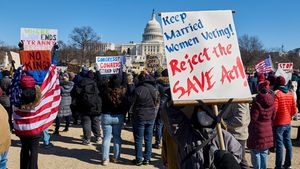




















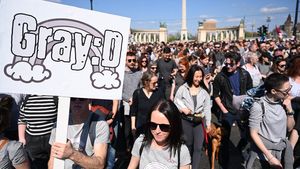







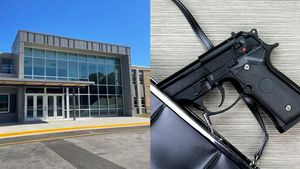




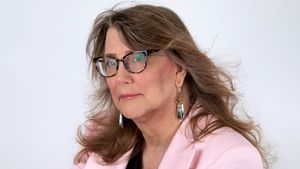







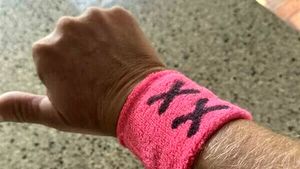









































The Mormon Church Is Gaslighting the LGBTQ+ Community
It’s not love. It’s abuse.
Kat Kellermeyer